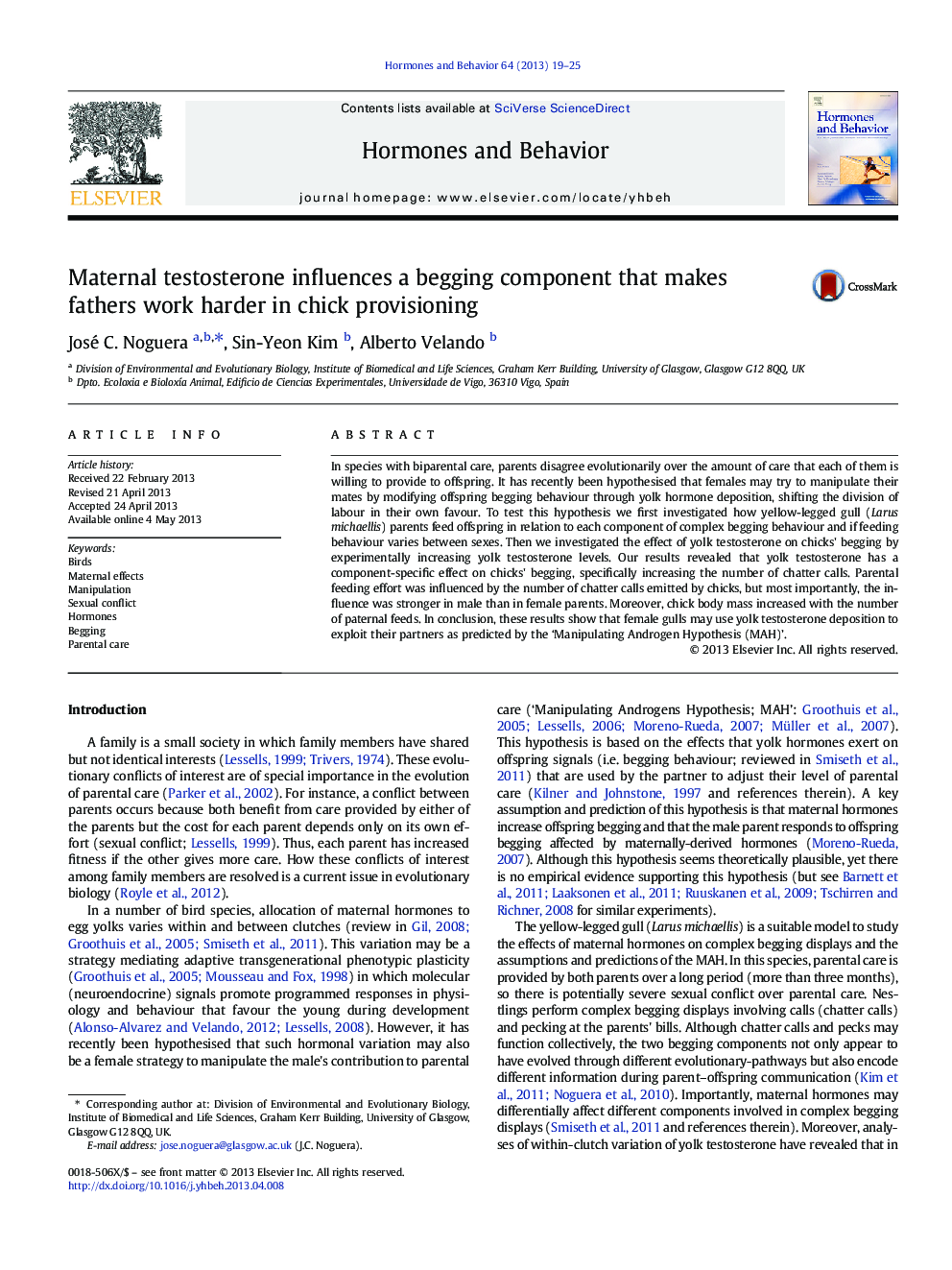| کد مقاله | کد نشریه | سال انتشار | مقاله انگلیسی | نسخه تمام متن |
|---|---|---|---|---|
| 323609 | 540724 | 2013 | 7 صفحه PDF | دانلود رایگان |

• We tested the ‘Manipulating Androgen Hypothesis’ (MAH) in yellow-legged gull.
• We assessed the effect of maternally-derived yolk testosterone on chicks' begging behaviour.
• We also assessed parental responsiveness to the components of chicks' begging.
• Fathers increased their feeding effort according to those components affected by testosterone.
• Maternal testosterone may be used to make fathers increase the level of parental care.
In species with biparental care, parents disagree evolutionarily over the amount of care that each of them is willing to provide to offspring. It has recently been hypothesised that females may try to manipulate their mates by modifying offspring begging behaviour through yolk hormone deposition, shifting the division of labour in their own favour. To test this hypothesis we first investigated how yellow-legged gull (Larus michaellis) parents feed offspring in relation to each component of complex begging behaviour and if feeding behaviour varies between sexes. Then we investigated the effect of yolk testosterone on chicks' begging by experimentally increasing yolk testosterone levels. Our results revealed that yolk testosterone has a component-specific effect on chicks' begging, specifically increasing the number of chatter calls. Parental feeding effort was influenced by the number of chatter calls emitted by chicks, but most importantly, the influence was stronger in male than in female parents. Moreover, chick body mass increased with the number of paternal feeds. In conclusion, these results show that female gulls may use yolk testosterone deposition to exploit their partners as predicted by the ‘Manipulating Androgen Hypothesis (MAH)’.
Journal: Hormones and Behavior - Volume 64, Issue 1, June 2013, Pages 19–25